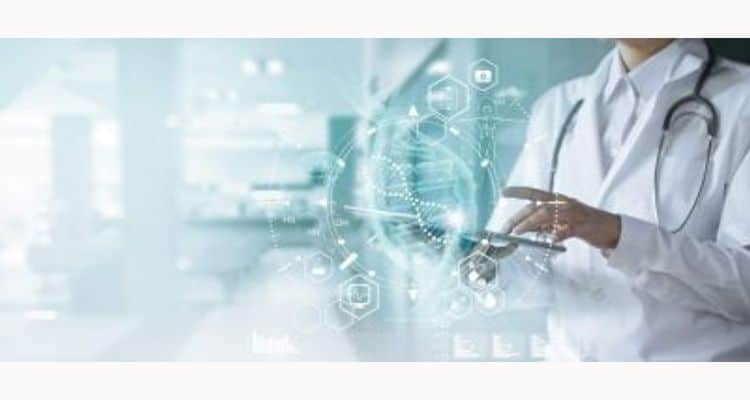ORF and Gilead Sciences launch report on how technology can transform health systems in emerging economies
The report identifies a dozen case studies from Bangladesh, India, Morocco, Rwanda, South Africa and Vietnam, which are dedicated to applying health innovation to improve health equity and inclusion across the Global South
Health is vital to ending poverty in emerging economies. The good news, from a report launched by the Observer Research Foundation (ORF) and Gilead Sciences at the high-profile Raisina Dialogue in Delhi recently, is that new technology and delivery models are making health accessible to more people than ever before, pointing the way to a new era in which healthcare is both equitable and inclusive for all.
The report, Health Equity and Inclusion in Action, was developed by global think-tank ORF in collaboration with Gilead Sciences. It examines the challenges of reaching universal healthcare in relatively lower-income countries, where past health delivery models are not reaching all who could benefit. As lifespans increase, the burden of infectious and chronic diseases also continues to grow. In emerging economies, with many people working in the informal or semi-formal economy, delivering healthcare to all has become more complex. Conventionally designed health systems are not formulated to provide accessible and affordable healthcare to those who cannot take time off work for an often-lengthy wait at a health facility. This has national as well as personal implications because economic development today is driven by healthier workers who are able to contribute fully to increasingly complex tasks. The new report outlines how case studies from six countries in Asia and Africa could serve as best practices by using technology and innovative business models to make access to health more equitable and inclusive.
Oommen C. Kurian, Senior Fellow and Head of the Health Initiative at ORF, the author of the report, commented, “The initiatives explored in the report were all developed by community advocates, policymakers and social entrepreneurs from the Global South to meet the health needs of people in relatively lower-income countries. There’s a great scope to share these models across the Global South and see if they can work across different countries to improve access and affordability.”
Vaibhavi Choksi, General Manager, India and South Asia, Gilead, said, “Gilead is committed to looking for solutions to overcome barriers to care – these case studies demonstrate that the solution to achieving more equitable care is out there and has already been implemented at the community level. At Gilead, we value learning from existing models to inform our approach to healthcare. We are glad to have supported this report with ORF and are excited for these lessons to go far and wide, and make a real difference for more equitable and inclusive care.”
Professor Yongyuth Yuthavong, member of the global WHO Science Council and chair of the Expert Group who advised on the report, said“, “This report demonstrates how we can all learn from the health entrepreneurs and advocates who initiated many of the case studies outlined in the report. If these approaches are more widely adopted, this could be the start of a new age of more inclusive, equitable access to health.”
The report identifies a dozen case studies from Bangladesh, India, Morocco, Rwanda, South Africa and Vietnam, which are dedicated to applying health innovation to improve health equity and inclusion across the Global South. One of the main lessons from the report is how ever-more-effective use of task shifting between layers of health staff can conserve precious healthcare human resources. For instance, nurses supported by appropriate technology can do tasks previously done by doctors, and community healthcare workers can do tasks previously done by nurses. In countries where there is a consistent shortage of more qualified health workers, this ensures that care can still be delivered effectively.
Similarly, the diagnostics revolution means affordable rapid diagnosis for a host of diseases are becoming available at rural healthcare clinics. The advent and implementation of telemedicine allow patients to receive remote treatment plans from a doctor, which can then be explained through a local health worker. This translates into previously less qualified health workers taking on much of the heavy lifting in the health system.
In India, iKure TechSoft, one case study cited in the report, is reducing costs and increasing efficiency through the use of technology and task shifting, with the aim of delivering a fundamental transformation in the way services are adopted and delivered. Not too far away in Bangladesh, the Jeoon Foundation is training informal healthcare providers, who are used by a majority of the population, to deliver improved services and use higher-quality medicines.
In South Africa, Unjani Clinic empowers nurse entrepreneurs to set up affordable private clinics in areas lacking health provision, or where the public sector is overwhelmed. This allows workers who could not afford to take a day—or longer—off to queue up in a public clinic to be seen quickly and affordably. Unjani Clinic is able to share its patient data securely and confidentially with the wider healthcare system, avoiding the fragmentation that often occurs in a mixed system with multiple providers.
The report notes that these initiatives must be linked to all other care providers in a national healthcare system to leverage the benefits of advanced data tools and allow the ability to draw on high-level expertise when needed. The growing accessibility of Artificial ntelligence (AI) and advanced data tools will allow a much better understanding of where gaps in care lie, and how they can be overcome.
- Advertisement -


